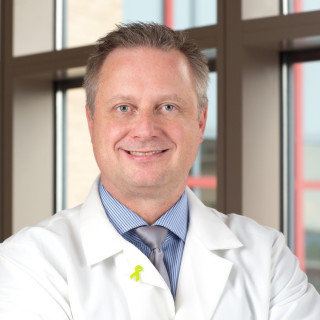The 2021 Society of Hematologic Oncology (SOHO) meeting provided many insights into the diagnosis, prognosis, and treatment of lymphoid malignancies. Expert speakers provided updates on recent FDA-approved targeted therapeutic agents across a host of lymphoma subtypes. They also highlighted the associated biology that spurred these approvals with a focus on the optimum integration of these novel therapeutics into classic treatment paradigms.
Dr. Martin Dreyling from the University of Munich and Dr. Brad Kahl from Washington University gave comprehensive overviews on current and new therapeutic options in untreated mantle cell lymphoma (MCL). Clinically, they suggested that MCL should be divided into different subtypes that include: low tumor volume, asymptomatic disease, and often with SOX11 expression, who may be considered for watchful waiting; low/high intermediate mantle international prognostic index (MIPI) score with moderate to high tumor burden, who should be considered for cytarabine-based chemotherapy platforms with additional consideration for consolidative autologous stem cell transplantation (ASCT); and high-risk disease that includes high MIPI, and/or blastoid subtype, and/or TP53 mutation and other adverse mutations, who should receive cytarabine-based chemotherapy platforms with consideration for consolidative ASCT with strong consideration for integration of novel therapeutic agents via clinical trials.
Dr. Kahl also discussed the importance of tailoring upfront treatment strategies with an eye on long-term disease management and consideration of patient age, fitness, and disease biology. In addition to TP53 and other mutations, he discussed the prognostic importance of Ki67 proliferation rate with >30%, representing a significant cut-point with integration into the clinic MIPI score.
There are several important ongoing or recently completed clinical trials in newly diagnosed MCL. The ongoing National phase III study ECOG-EA4151 randomizes newly-diagnosed MCL patients in first clinical remission to autologous SCT versus not based on minimal residual disease (MRD) as assessed on next-generation sequencing. In addition, there are several ongoing or recently completed phase III studies that have integrated bruton tyrosine kinase (BTK) inhibitors and other novel targeted therapeutic agents into frontline therapy for MCL. This includes the Triangle study, integrating ibrutinib into a cytarabine-based and ASCT paradigm, and the SHINE trial adding ibrutinib to a bendamustine and rituximab backbone for untreated MCL. Results from these clinical studies are eagerly awaited.
Dr. Stephen Ansell from the Mayo Clinic discussed the biology and the integration of targeted therapeutics in the treatment of classical Hodgkin lymphoma (cHL). He reviewed the ubiquitous presence of CD30 and the antibody-drug conjugate brentuximab vedotin (ADCETRIS), which is now FDA approved for untreated cHL patients with advanced-stage disease. This was based on the ECHELON-1 trial consisting of brentuximab vedotin and AVD given for six cycles compared with ABVD chemotherapy. There was recently published data with a median follow-up of 61 months showing five-year progression-free survival (PFS) of 82% with A+AVD versus 75% with ABVD (hazard ratio [HR] 0.68, p=0.0017). Among PET-2-negative patients, five-year PFS was higher with A+AVD than ABVD (85% vs 79%; HR 0.66; p=0.0035) and for PET-2-positive patients, five-year PFS was 61% vs. 46%, respectively (HR 0.70, p=0.23).
Dr. Ansell also reviewed the bench to bedside discovery and importance of programmed cell death 1 (PD-1) with programmed cell death ligand PD-L that activates the immune checkpoint leading to T-cell dysfunction, exhaustion, and tolerance. There was a related discussion of two FDA-approved PD-1 inhibitors, which are highly efficacious in the treatment of relapsed or refractory cHL.
There is an ongoing high priority North American phase III randomized study of nivolumab plus AVD chemotherapy versus brentuximab vedotin plus AVD chemotherapy in patients with newly diagnosed advanced-stage Hodgkin lymphoma. The S1826 trial is led by SWOG and involves close collaboration by the Children’s Oncology Group (COG), the Eastern Cooperative Oncology Group/American College of Radiology Imaging Network (ECOG/ACRIN), the Alliance for Clinical Trials in Oncology, and the Canadian Cancer Trials group. The trial is evaluating patients ages 12 years and older in North America. Since the study does not include bleomycin, etoposide, doxorubicin, cyclophosphamide, vincristine, procarbazine, and prednisone (BEACOPP) in a treatment arm, there is no upper age limit, allowing for more inclusive enrollment.
Dr. Loretta Nastoupil from MD Anderson Cancer Center reviewed the contemporary therapeutic options for relapsed/refractory diffuse large B-cell lymphoma (DLBCL) in 2021. She reviewed that approximately 50-60% of patients are cured with initial upfront rituximab-chemotherapy. For patients with the first relapse, historical paradigms have included salvage chemotherapy followed by ASCT. However, she highlighted recently completed phase III studies, showing that CD19 chimeric antigen receptor (CAR) T-cell therapy may be superior to this historical approach. Presentation of these data is eagerly awaited. She also presented data for commercial CD19 CART T-cell therapy that has resulted in similar efficacy and comparable safety compared to the pivotal studies despite application in sicker or more frail patients.
In addition to CD19-CAR T-cell therapy, there are several other recently FDA-approved targeted agents for the treatment of relapsed/refractory DLBCL. This includes polatuzumab vedotin-piiq CD79-based antibody-drug conjugate (POLIVY), combined with bendamustine and rituximab; tafasitamab-cxix (MONJUVI), a CD19-directed cytolytic antibody, in combination with lenalidomide; loncastuximab tesirine-lpyl (Zynlonta), a CD19-directed antibody and alkylating agent conjugate; and selinexor (XPOVIO), a reversible inhibitor of nuclear export of tumor-suppressor proteins, growth regulators, and mRNAs of oncogenic proteins by blocking exportin 1 (XPO1).
Additionally, there are several emerging classes of therapeutic agents, such as bispecific antibodies, that target both CD20 and CD3 for the treatment of B-cell lymphomas. There are currently four leading therapeutic agents in this class with high documented clinical efficacy, including for DLBCL patients who fail CD-19 CAR T-cell therapy, that should garner FDA approval soon.
Dr. Lauren Pinter-Brown from the University of California at Irvine provided a comprehensive review of the current treatment landscape in advanced cutaneous T-cell lymphoma (CTCL) with a focus on mycoses fungoides (MF). She discussed the variety of targeted therapeutic agents approved for relapsed/refractory MF, such as brentuximab vedotin (for patients with CD30 positive disease), HDAC inhibitors, pralatrexate therapy, and the anti-CC chemokine receptor 4 (CCR4) monoclonal antibody, mogamulizumab-kpkc (POTELIGO).
She also reviewed other therapeutic options for relapsed/refractory MF patients, including bexarotene, extracorporeal photopheresis, liposomal anthracycline, and several other single-agent chemotherapeutics. Furthermore, she focused that the administration of treatment agents should be "compartment appropriate" (i.e., epidermal skin, dermal skin, blood, nodes, and/or viscera).
Altogether, a multitude of novel therapeutic agents have been recently FDA approved for the treatment in multiple lymphoma subtypes. Clinical trials will be critical to help define the optimal integration into current therapeutic paradigms. Moreover, translational biomarker studies will be important to enhance prognostication, as well as to enrich the predictability of efficacy of these novel treatment agents and improve patient outcomes.
Dr. Evens has received grants from ORIEN and Leukemia & Lymphoma Society, honorarium from Seattle Genetics, Karyopharm, Hutchmed, and Epizyme, fees for participation from Novartis, Abbvie, and Pharmacyclics. They also report educational: Research to Practice, Curio, Cota, Patient Power, Curio Science, and OncLive.
Image by Crystal Eye Studio / Shutterstock







